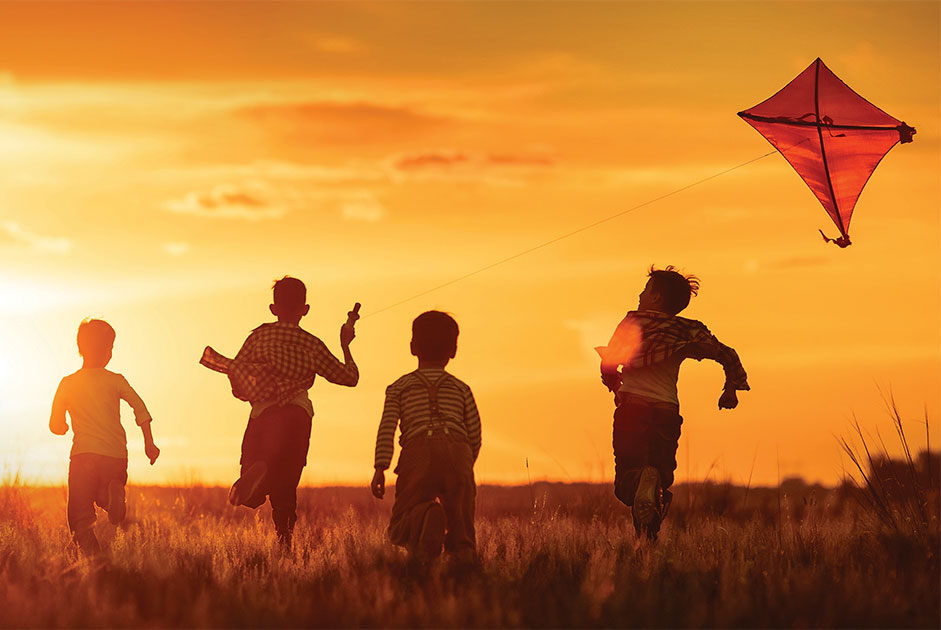Finally, the carefree days of summer have arrived. Gone are the busy days of the school year. Plus, with the COVID-19 pandemic “somewhat” behind us, children and adults are thrilled to spend quality time with family and friends together. While this reprieve could not have arrived at a more needed time, this season has often become synonymous with lengthy days spent doing a whole lot of nothing. Hence why many call the days that fill this season the “lazy days of summer.” Even though this term is quick to imply that our break should be spent doing not much of anything, it is vital to realize children and adults alike benefit from spending time outside, enjoying the outdoors, versus glued to phones, tablets, and televisions. According to the Kaiser Family Foundation, “children ages 8-18 get an average of 7.5 hours of daily screen time.” What is frightening is that this is only taking “entertainment screen time” into account, not educational screen time, which we all needed to do the majority of last year! In contrast, the average American child spends only four to seven minutes a day involved in unstructured play outside. Yes, four to seven minutes. Curious about how beneficial putting down our phones can be for our younger generations (not to mention ourselves)? Read on for reasons why we all should incorporate as much “green time,” versus “screen time” as we can this summer!
Reason #1: The outdoors keeps children active. With childhood obesity on the rise, being outdoors requires our younger generations to move, which in turn can help manage weight. Plus, the good news is any outside activity can qualify as exercise. From playing a team-based sport, like soccer, to taking the bike for a ride, to simply exploring the yard while picking wildflowers, all outdoor activities are great exercise for children.
Reason #2: Being outside improves children’s physical and mental well-being. We can easily see how being outside would benefit our children’s physical well-being, but we should also realize it can help their mental health. Fresh air and green spaces have a natural calming effect on our bodies. Outdoor play promotes beneficial “feel-good” hormones like oxytocin and serotonin. By simply being outside, we lower our stress levels and reduce anxiety. This is a welcome change from spending time looking at screens, which is said to increase anxiety among our youth.
Reason #3: Playing outside creates opportunities to socialize. Speaking of friends, our younger generations, sadly, had most of the last two years pulled away from them regarding socializing and making friends. Let’s take this summer to allow them to enjoy mingling again with peers, yet this time away from electronic devices! Many outside activities require children to work together, from playing a game of Marco Polo at the neighborhood pool, to team collaborating in building a new fort, the outside is filled with countless socialization opportunities.
Reason #4: Being outdoors can help children sleep in the evening. During summer months, schedules often are disrupted. Oftentimes, children are sleeping in, and staying up much later in the evening. All of this can lead to a tough first week back to school, when school schedules require all to be up at an early hour. All this said, playing outside daily, will help children naturally reset their circadian sleep rhythms. Fresh air, exposure to natural light, plus physical activity all work together to naturally require children to need to rest once nightfall arrives.
Reason #5: Being outside can help teach responsibility to all ages. When children play outside, they can witness all the life that lives around us, away from the indoors and devices. Children can see how squirrels hunt for nuts to store away for their family, or how thirsty flowers require daily watering during the sweltering summer heat. Being outside enables us all to witness how we need to take responsibility for nurturing and caring for our outside animals and plants. By taking children outside, they can learn how to care for our world, from watering plants, to picking up trash. Kids who spend time in nature are more likely to appreciate and care for the planet as they age.






















